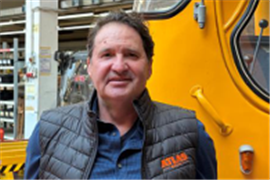Hyundai and Cummins agree Korean engine JV
11 September 2012
.gif)
Hyundai Heavy Industries (HHI) and Cummins have signed a 50:50 joint venture agreement to manufacture engines for the construction equipment industry in the South Korean city of Daegu. Production is due to start in 2014 and the factory will have an annual capacity of 50,000 engines.
HHI and Cummins will each invest US$ 33 million in the joint venture, and one of the main customers will be Hyundai's own construction equipment manufacturing business, which has its main operation in Ulsan, South Korea. "The establishment of the joint engine factory will give HHI's Construction Equipment Division a stable supply of high-quality engines," said a statement from Hyundai.
The signing ceremony, held at Hyundai Heavy's headquarters in Ulsan, Korea, was attended by Rich Freeland, president of Cummins, Mr. Choe Byeong-ku, COO of Hyundai's Construction Equipment Division, and Mr. Kim Jeong-hwan, COO of Hyundai Engine & Machinery Division.
The joint venture, has targeted sales of KRW 320 billion (US$ 282 million) in 2014. Hyundai meanwhile hopes to grow its construction equipment sales from US$ 3.7 billion in 2011 to US$ 4.2 billion this year.
"We believe Hyundai Cummins Engine Company will play a critical role for expanding our global market presence. Our goal is to become a Top 3 manufacturer of earthmovers by 2016 with annual sales of USD 9.1 billion," said Mr Choe.





